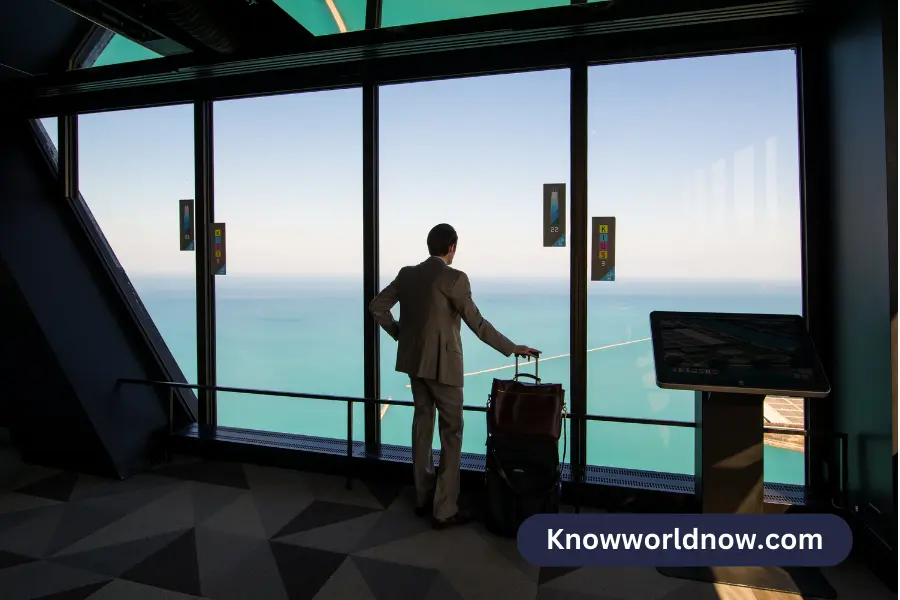Business travel can include short trips, such as leaving your office in Manchester to visit a prospect or client in Sheffield, or long trips, like flying from Manchester to London to catch up with the company’s central office.
More often than not, expenses occur when professional duties impose on you to travel more than one day, as you’re forced to eat and sleep in the new location.
If you have a job that involves travelling, any expenses you incur for the trip will be reimbursed by your employer.
There’s no law or requirement for them to do so, yet many employers have a reimbursement policy for travel expenses. If it meets all the requirements, business travel is usually tax-free.
As A Business Traveller, You’re Eligible for Many Deductions on Your Expenses
Not every social interaction can be replaced by a Zoom meeting, so it’s essential to get a grasp of the financial opportunities available.
Travel expenses are exempt from tax by the HMRC if your attendance benefits the business, but corresponding receipts must be kept and submitted. Eligible expenses that employees can claim include but aren’t limited to:
- Public transport (train, long-distance coaches, aeroplanes)
- Hotel accommodation
- Food & beverages
- Congestion (toll road changes)
- Parking fees
- Cell phone expenses
- Printing costs
- Mileage
Attention must be paid to the fact that transportation from home to the airport isn’t deductible. As far as parking is concerned, a percentage of this expense is deductible as long as it’s not reimbursed by the airline.
Manchester Airport has long been criticised for its on-site fees. Prices are by and large cheaper at smaller airports, with the most economical option, parking at Stansted, as reported by experts at Parkos.
Similar to the mileage deduction, you must have records of your parking expenses to claim a deduction.
How Is Business Travel Different from Personal Travel?
It’s not possible to deduct travel expenses that are for personal purposes. Non-business travel counts as private. Personal travel is travel that is undertaken to visit friends and family, explore other places and cultures, or experience freedom and personal growth.
By contrast, business travel is travel undertaken by employees (or company executives) to help the business grow and enhance its image. Here are some examples of trips individuals make for work purposes:
- Attending a conference/convention/trade show
- Evaluating a project site
- Negotiating with suppliers
- Installing equipment for a customer
- Networking
- Apologising to someone
- Promoting a product/service
- Meeting with colleagues
Failure to provide receipts for business travel and expense claims can lead to the organisation paying thousands back to the HM Revenue and Customs (HMRC).
If you incurred minor costs relating to personal activities while travelling for work, in addition to major expenses such as ticket prices and hotel fees, they’re not deductible expenses.
You can claim tax relief for foreign travel if the trip has been necessary for the purpose of doing your job. If you were outside the United Kingdom for a week or less and carried out business activities, your travel is counted as work days.
Your employer must provide the necessary documentation to satisfy the claim, and only after they’ve done this the expenses relating to foreign travel are allowable.
Employees’ Responsibilities for Travel Expenses
If the expenses associated with travelling for business-related activities aren’t covered by the employer, you can reclaim the taxes from the government.
Nevertheless, there are some requirements to be met. Record the date, time, and purpose of your trip, as this is helpful if you need to provide documentation to the HMRC.
If you don’t get a tax return, make sure to reach out by 5 October. In case you didn’t know, the records must be kept at least 22 months after the end of the relevant tax year.
It would help if your employer informed you about the payments and PSA items that apply to you. Check all information you receive to ensure it’s not wrong or incomplete.
Tax relief works by deducting the expense from your employment income, so it reduces your tax burden. If your employer reimburses you for your travel costs, you can’t obtain tax relief because you haven’t personally incurred any expenses.
There are no geographical restrictions on expenses, provided they’re necessary for business. More specifically, you can claim tax relief on Manchester parking or Stansted parking.
The frequency of business trips doesn’t matter as long as you maintain continuous records of expenses through receipts or invoices so that you’re able to write off the costs.
You usually don’t have to complete a tax return if you identify errors or omissions in the information provided by your employer, there’s a change in circumstances, or you have the income you haven’t reported to the HMRC.
How To Manage Your Business Travel Expenses
If you want to slash business travel expenses, book ahead of time, as it can result in considerable savings. Not only will you get a cheaper deal for travel, but you’ll also have enough time to find the best price.
Don’t wait until the last minute because it rarely works out. The same goes for airport parking. Pre-book, even if it’s the same day as travelling, although you should reserve a spot one month before you head out.
Little things add up when you’re out and about, so compare costs in advance. Perhaps it’s more affordable in the long run to take an Uber than to rent a car.
One of the easiest ways to save time and money is to not check in your luggage. So, bring as little as possible and only what’s necessary.
You can easily keep track of all your belongings and there’s no reason to worry that your luggage will disappear.
Credit cards are generally more convenient than carrying cash, and financial institutions offer point-based programs that you can take advantage of to redeem rewards, discounts, and other perks.
The credit card puts an end to receipts, meaning the finance team has direct access to the complete details of all transactions.
Wrapping It Up
Consider keeping a journal in which you monitor all your expenses, including location, what you bought, how much it cost, and how exactly it relates to your work. Remember that not all expenses are deductible.




